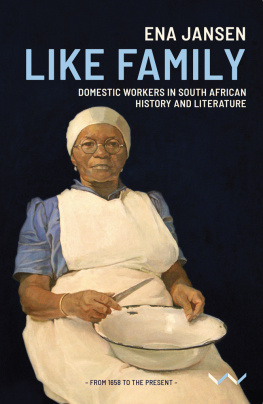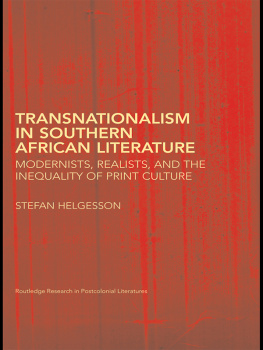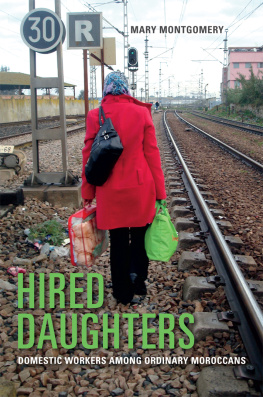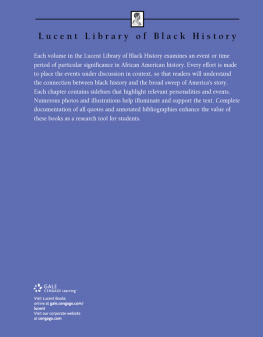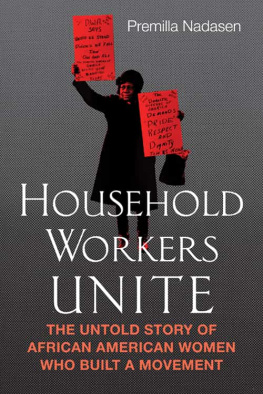Published in South Africa by:
Wits University Press
1 Jan Smuts Avenue
Johannesburg 2001
www.witspress.co.za
Copyright Ena Jansen 2019
Published edition Wits University Press 2019
Images Copyright holders
First published 2019
http://dx.doi.org.10.18772/12019043511
978-1-77614-351-1 (Paperback)
978-1-77614-352-8 (Web PDF)
978-1-77614-353-5 (EPUB)
978-1-77614-354-2 (Mobi)
All rights reserved. No part of this publication may be reproduced, stored in a retrieval system, or transmitted in any form or by any means, electronic, mechanical, photocopying, recording or otherwise, without the written permission of the publisher, except in accordance with the provisions of the Copyright Act, Act 98 of 1978.
All images remain the property of the copyright holders. The publishers gratefully acknowledge the publishers, institutions and individuals referenced in captions for the use of images. Every effort has been made to locate the original copyright holders of the images reproduced here; please contact Wits University Press in case of any omissions or errors.
Like Family received the support of research funds held by the author at the University of Johannesburg and the University of Amsterdam. Like Family is an updated and reworked translation of Soos familie: Stedelike huiswerkers in Suid-Afrikaanse tekste, 2015.
Project manager: Elaine Williams
Copyeditor: Lynda Gilfillan
Proofreader: Janine Loedolff
Indexer: Sanet le Roux
Cover design: Hybrid Creative
Typesetter: Newgen
Typeset in 10.5 point Plantin
Acknowledgements
The South African tradition of white people employing domestic workers has meant that, from infancy, black women have been part of my life. The two who took care of my twin sister and me I knew only as Thandi and Katrina. But there were other like family women, too, in the world I grew up in. Trui and Meisie worked for my Ouma and Oupa Myburgh in Darling, and Eisa worked for the Broeksma family in the Strand. Ou-Minnie, who came from Genadendal, was Alba Bouwers housekeeper, and I met her in Cape Town during my stay with Alba, who had given me and my sister her Rivierplaas books about the Free State farm where she and our father had grown up.
Without Gerty Appolus, I cannot even imagine my parents in Somerset West, as Gerty has been taking care of their household every Wednesday for close on twenty years. June Esau, Alice Motau, Loretta Leonard and Krissie Pietersen have been their daily carers ever since 2016. Minnie Engelbrecht, who helped raise the four children of my sister Christine and her husband Kosie Smit in Stellenbosch, is fondly remembered. Nomahobe Cecilia Magadlela worked for me on Thursdays in Johannesburg until she retired to the Eastern Cape. Without the help and friendship of Mantwa Regina Lobie, San Bernardo in Cape Town, where I partly live, would not be the same.
Like Family has had many sources of inspiration. Among the most important was my time in Johannesburg, in Tolip Street, when Cecilia started working for me in 1989. I wrote a short story about her daughter Rachel and three other black children who lived in Tolip Street; it was included in a textbook called Lees is lekker! (Reading is fun; 1996). The previous year, the story had been translated into Dutch by Riet de Jong-Goossens and was included in Kort Afrikaans (1995). At the time, Riet regularly stayed with me in Johannesburg and embarked on the initiative of establishing an education fund for Rachel.
The original Afrikaans version of this book, Soos familie (2015), as well as the Dutch translation, Bijna familie (2016), are dedicated to Nomahobe Cecilia Magadlela. Our lives first became entangled in 1989, and it was her personal life story that opened my eyes to the ingenuity that migrant women employ in making use of opportunities in Johannesburg, but also to the extreme difficulties of their lives.
I decided to dedicate Like Family to Nomahobe Cecilia Magadlela and to the memory of Auntie Meisie Cleophas, who worked for my grandparents in Darling near Cape Town in the 1950s. Year after year, she looked after my twin sister and me during school holidays, and she also accompanied our family to the Strand. In one lovely photograph taken on 11 September 1955, my sister and I are running hand-in-hand with her along the beach. Meisie is wearing white shoes and socks. She could easily be our mother: we clearly belong together and appear to be very close, though she is much darker-skinned than we are. Also, she is wearing an apron on the beach. We stayed at the Melkbaai Hotel, but where did Meisie stay? Although Christine and I often spoke of her, for 62 years we completely lost touch with her. Quite by chance, I found Meisie via a Facebook friend on Mothers Day in 2017. As soon as I was able to return from Amsterdam to Cape Town, my sister and I had a warm reunion with her at the home of one of her eight children. It was then that I learnt about the small back rooms behind the Melkbaai Hotel where staff were accommodated. A few weeks later, I met Auntie Meisie again, with the idea of a collaborative project recording the effect of the Group Areas Act on the lives of the Cleophas family. However, Meisie Cleophas unexpectedly died, aged 91, on 1 October 2017.
Before this, ever since 2003, I had developed a growing fascination with Krotoa-Eva, who rose from being a nanny in the family of Jan Van Riebeeck to becoming his most trusted interpreter and mediator in his contacts with the local Cape people during the 1650s. This spurred my interest in domestic workers, making me realise that, like Krotoa, they are go-between figures. My inaugural address as professor of South African literature at the University of Amsterdam in April 2003, was my first foray into a complex and fascinating world, the depth of which, at that stage, I had no idea. During the years that followed, funding from the Free University of Amsterdam, the University of Amsterdam, and the University of the Witwatersrand, where I was a research fellow, and the University of Johannesburg, where I am currently an honorary research fellow, as well as the Van Ewijck Foundation in Cape Town, enabled me to do research in South Africa and to attend conferences. A sabbatical funded by the Dutch Scientific Organisation (NWO) enabled me to work on the project full-time for twelve months in 2008/2009.
Colleagues at both Amsterdam universities encouraged and inspired me. Fellow participants at conferences in South Africa, as well as peer reviewers and editors of literary and sociology journals in which my first articles on slavery novels and domestic worker characters appeared, helped to focus my thoughts. A request I received to write about domestic work as a place of memory was the inspiration for research into a family archive: my grandmothers photo albums. After that, in 2010, I had several productive meetings with Wits sociologist Shireen Ally and artist Mary Sibande, and this in turn led to international exposure of my memory-article in the South African Review of Sociology and De Gids, with the assistance of translators Libby Meintjes and Riet de Jong-Goossens.
Through the years, dedicated librarians have assisted me: at the William Cullen library at Wits, where I spent many happy weeks researching; in Cape Towns South African National Library and the Iziko Social History Centre on Church Square, as well as the


